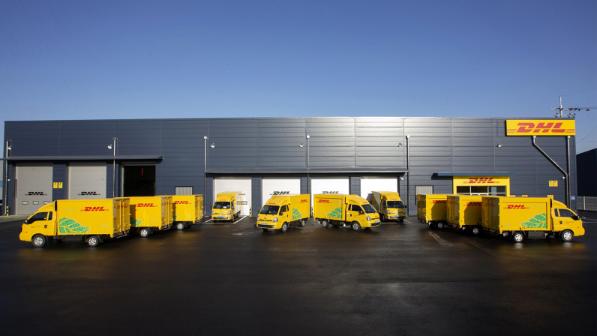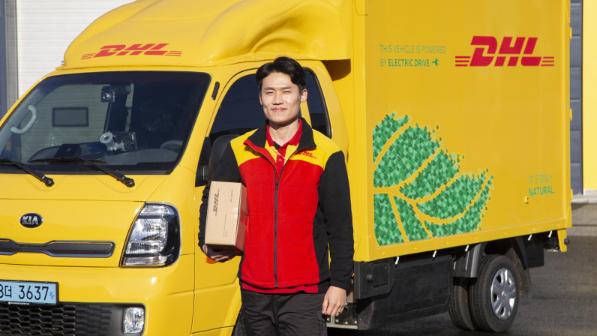DHL EXPRESS KOREA INTRODUCES ELECTRIC DELIVERY VANS TO REDUCE CARBON EMISSIONS
Press Release: Seoul, December 6, 2021

- 45 newly added electric vans will increase operational efficiency and reduce carbon emissions by more than 405,000kg of CO2 annually
- DHL Express Korea plans to deploy an additional 45 electric vans in 2022, aiming to replace 18% of its fleet with electric vehicles
- Charging station installation and staff training to be implemented
DHL Express, the world’s leading international express service provider, today announced it has added 45 electric delivery vans to its fleet, in line with Deutsche Post DHL Group’s target to reduce all logistics-related emissions to net zero by 2050.
The newly introduced electric vans are Bongo III EV model of Kia Motors, which has a maximum load capacity of 1,000 kilograms. It will require 9 hours to be fully charged for travel of up to 211 kilometers. DHL Express Korea will deploy the 45 electric vans at service centers located across the nation and plans to introduce an additional 45 electric vans in 2022 to replace 18% of its fleet with electric vehicles.
At the same time, DHL will install 7kw charging stations in its existing 22 service centers across the nation and provide its staff with necessary guidance and training related to charging and maintaining electric vehicles so as to prevent any unexpected safety incidents.
“DHL has been constantly striving to implement and practice decarbonization initiatives for the sustainable growth of the company. With the maximum distance of the electric vehicles being extended with the help of developing technology, we will continue to electrify more of the existing conventional vehicles,” said ByungKoo Han, Country Manager of DHL Express Korea.
With the electric vans, DHL can reduce more than 30% in fuel costs compared to conventional vehicles, thus enormously enhancing the operational efficiency of its fleet and at the same time contributing to protecting the environment by cutting more than 405,000kg CO2 carbon emissions annually.
In March 2021, Deutsche Post DHL Group announced an accelerated roadmap to decarbonization. The Group will invest a total of EUR 7 billion over the next ten years in measures to reduce its CO2 emissions. The funds will flow in particular into alternative aviation fuels, the expansion of the zero-emission e-vehicle fleet, and climate-neutral buildings. By 2030, 60% of the Group’s last-mile delivery vehicles will be electrically powered globally, with more than 80,000 e-vehicles on the road then.
